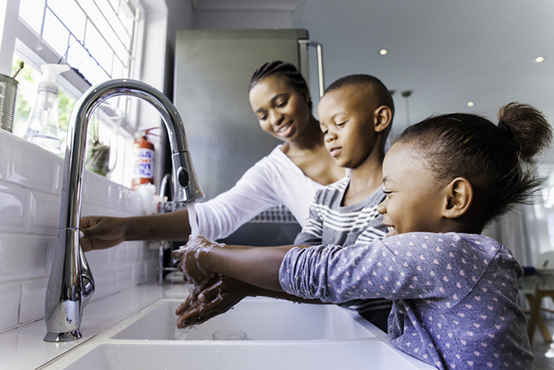Water, one of Earth’s most precious resources, is alarmingly finite. With the global population on a continuous rise and fresh water sources diminishing or getting polluted, water conservation has never been more critical. Even small changes in household use can accumulate into massive water savings. Here’s a guide on how to judiciously use and save water in your home.
Know Your Water: Starting with Quality
Before diving into conservation techniques, it’s essential to understand the water you’re using. Depending on where you live, you might have access to hard or soft water, each coming with its own set of challenges. To combat impurities and improve water quality, many households opt for purification systems. RO water which is derived from a Reverse Osmosis process, is one such purified form. It’s essential, however, to maintain these systems well to ensure minimal water wastage during the purification process.
Tackling Big Consumers: Bathroom and Kitchen
- Shorter Showers: It’s tempting to enjoy a long, warm shower, especially after a tiring day. But reducing your shower time by even a couple of minutes can save gallons of water.
- Turn Off the Tap: Whether you’re brushing your teeth, shaving, or washing your hands, make it a habit to turn off the tap when not in direct use.
- Fix Leaks: A dripping faucet or a leaking toilet can waste thousands of gallons a year. Regularly check for leaks in your bathroom and kitchen and repair them promptly.
- Mindful Dishwashing: If you’re using a dishwasher, run it only when it’s full. If washing by hand, fill one sink with wash water and the other with rinse water rather than letting the tap run.
- Cooking with Care: Instead of running tap water to thaw food, plan ahead and defrost it in the fridge. Similarly, when washing fruits and vegetables, use a pan of water instead of a running tap.
Laundry: A Balance of Clean Clothes and Conservation
- Full Loads: Just like the dishwasher, run your washing machine only when you have a full load. This not only saves water but also energy.
- Water Level: If your washing machine allows, adjust the water level to match the size of the load.
- Reuse: Consider reusing towels a couple of times before washing, especially if they’re not very dirty.
Landscaping and Gardening: Green without Waste
- Native Plants: Opt for plants native to your region. They generally require less water and are more resistant to local pests and diseases.
- Watering Wisely: Water your plants during the cooler parts of the day, such as early morning or late evening, to minimize evaporation. Using a soaker hose or a drip irrigation system can be more efficient than a sprinkler.
- Rainwater Harvesting: Set up a rain barrel to collect rainwater. This can then be used to water your plants, saving gallons of tap water.
- Mulching: Use mulch around plants to reduce evaporation, keep the soil cooler, and prevent weed growth, which competes with plants for water.
Educating and Involving the Household
- Teach Kids: Kids can be both a challenge and an asset. Ensure they understand the importance of conserving water. Turning off the tap and enjoying shorter showers can be made into fun activities or challenges.
- Awareness: Occasionally discussing the significance of water and the current global situation can keep everyone in the household conscious of their water usage.
- Rewarding Conservation: Set monthly water usage goals and, if achieved, consider a small reward for the family. This can make conservation both fun and motivating.
The Bigger Picture: Community Involvement
Beyond our households, there’s an entire community we can influence. Consider joining or initiating community discussions on water conservation. Share tips, discuss challenges, and come together to adopt broader measures like community rainwater harvesting or advocating for efficient local water treatment practices.
Every Drop Counts
Water conservation in household use is not just a responsibility; it’s a necessity. With worsening water crises in many parts of the world, our combined efforts can pave the way for a sustainable future. Remember, every drop we save today ensures a safer, more secure tomorrow for ourselves and future generations. So let’s pledge to use water wisely and cherish this invaluable resource.







